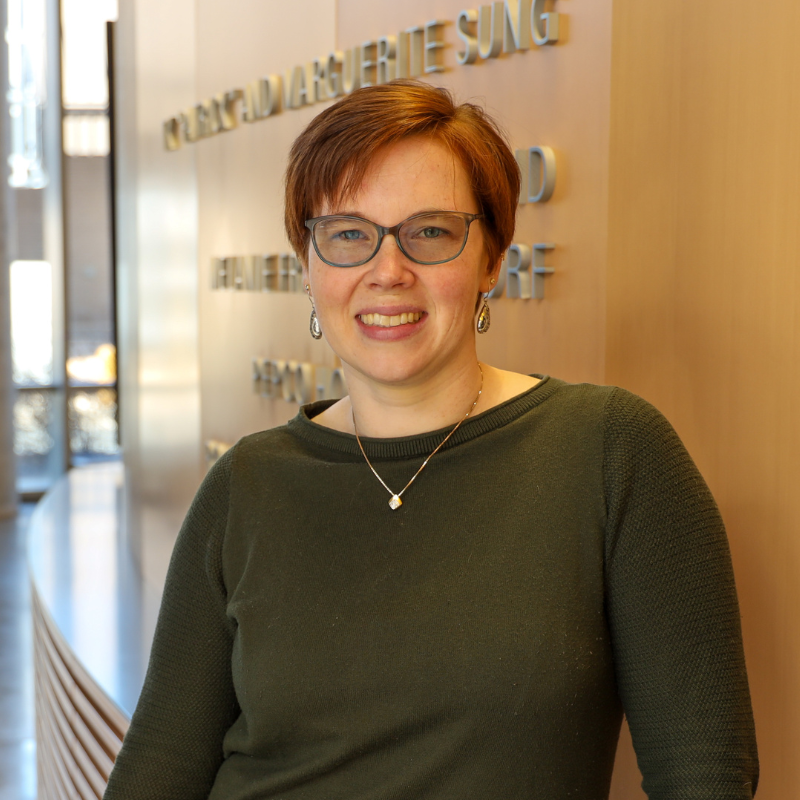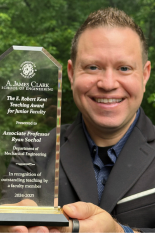News Story
UMD Researchers to Lead NIH-funded Program Supporting Underrepresented Students
The University of Maryland (UMD) Fischell Department of Bioengineering (BIOE) received word in March that a team of female researchers will receive the inaugural Maximizing Access to Research Careers (MARC) award to assemble an educational program to break down research barriers for students traditionally underrepresented in STEM.
Granted by a panel from the National Institutes of Health (NIH), only one MARC award can be given to a college campus, further distinguishing the efforts of this team.
“We were thrilled that our proposal was funded and also received a great score from the NIH panel reviewing it,” said Katharina Maisel, the lead of several multiple principal investigators (MPI) on the award. The NIH panel liked many details in the UMD team’s program that would increase representation in biomedical sciences at the graduate level, she noted.
The program has goals to increase the number of students from groups underrepresented in STEM that pursue biomedical, research-focused higher degree programs (Ph.D. or M.D./Ph.D.), support trainees in overcoming barriers to entering research and preparing them for research careers, and develop faculty mentors who will enhance research pool variety throughout their careers by training them in best practices in mentoring a wide variety of researchers. The MARC team will reach prospective participants in first-year STEM courses and labs, inducting three sophomore awardees each year of the five-year grant.
The NIH panel liked that the program seeks participants early, with an application deadline near the end of their first undergraduate year. Also popular with the panel was the MARC program's plans for financial advising and community building.
An assistant professor and head of the Mucosal Associated Immune System Engineering and Lymphatics Lab, Maisel will work with fellow BIOE MPIs Kim Stroka, and Alisa Clyne. Stroka is an associate professor, and Clyne is a professor in BIOE. Amelia Arria, will serve as a fourth MPI on the program. A professor and associate chair in the UMD School of Public Health, she will provide assessments to help with student readiness and identify areas where support is needed (see her MOSAIC program).
In the three-year program, sophomores will rotate through two labs and be matched to remain in one lab for the remaining five semesters. Learning facets of being a researcher, they will assemble abstracts, submit fellowships open to undergraduates, take part in the scientific community, and manage their own education finances.
Erika Moore, Ph.D., will facilitate a financial literacy program in MARC—after joining BIOE as an assistant professor in summer 2023. Currently an assistant professor in materials science at University of Florida, Moore runs a nonprofit, Moore Wealth, focused on increasing financial literacy in workshops for historically excluded students.
The program aims to build community with lunch-and-learns and other activities, says Maisel. Pointing out that increased community expands retention and allows students to know more fellow scientists in their graduate careers as well, Maisel notes that her own undergraduate experience in a women-in-engineering living-and-learning program at University of Michigan guided some of the MARC program planning.
“I really benefited from having a space to talk with others having a similar experience,” she said. “We’re trying to take a wholistic approach with the students in MARC as well.”
Written by Catherine Arnold.
Published May 25, 2023





